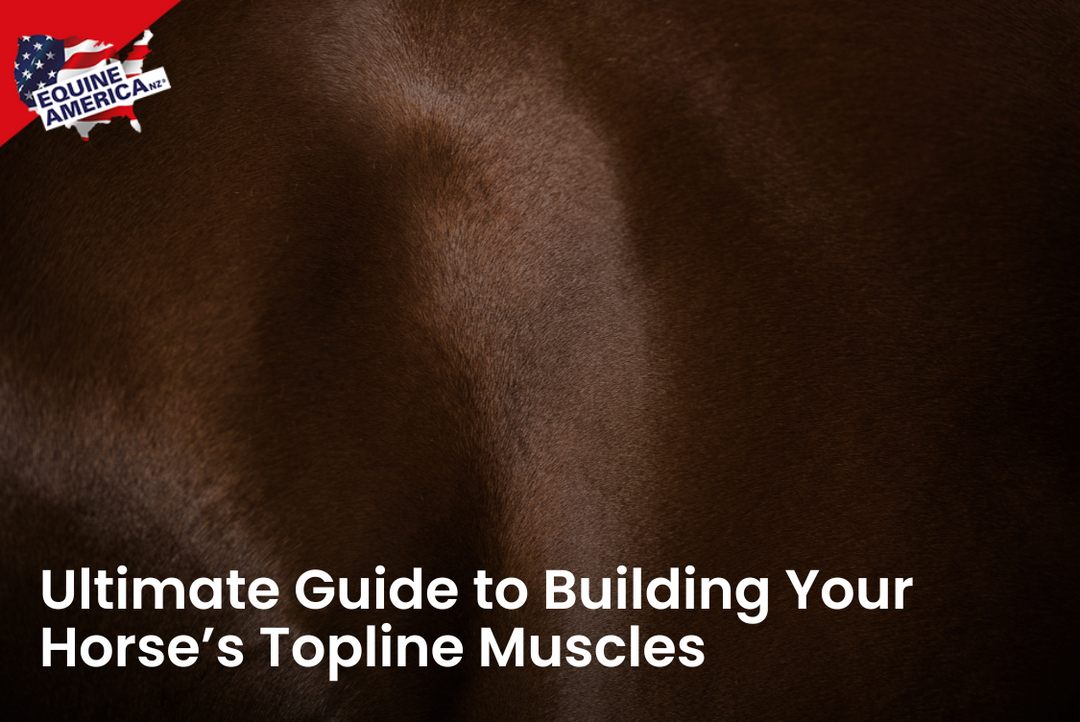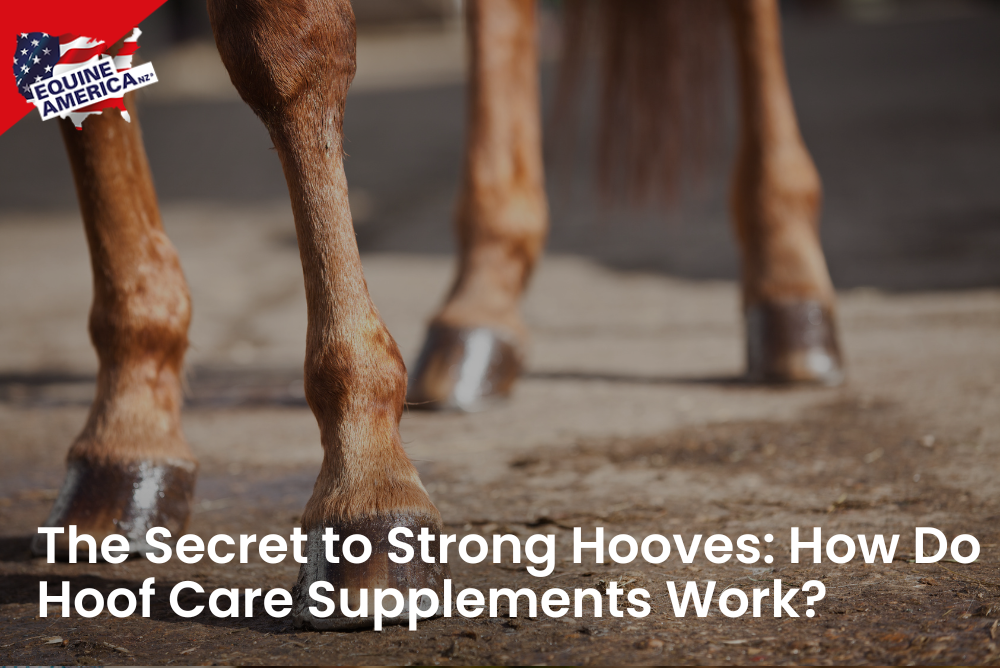
Looking after your horse's health is no small task, and feeding them the right food is only part of the puzzle. Horse supplements can play a huge role in making sure your horse gets all the nutrients they need to stay in peak condition. Whether you're looking to improve their performance, maintain their digestive health, or fill in nutritional gaps, knowing how to incorporate horse supplements and equine products into your horse's daily routine is key.
But, it’s not as simple as tossing supplements into your horse's feed and calling it a day. You’ve got to be smart about it. Like us, horses have unique nutritional needs depending on their age, workload, and health. So, let’s dig into how to make sure your horse gets the right balance.
Why Use Horse Supplements?
If you’re new to horse supplements, you might be wondering, "Does my horse really need these?" The short answer: maybe. Here’s why.
In the wild, horses naturally graze on a variety of plants and grasses that give them all the nutrients they need. But modern domesticated horses often don’t get that diversity from their feed, especially if they’re in stables, have limited grazing, or are on processed feed. That’s where equine supplements come into play. They help bridge the gap in nutrition, providing a balanced horse diet.
Supplements can:
- Enhance performance, especially for competition horses
- Support healthy joints and bones
- Aid horse digestive health
- Boost immune function
- Improve coat and hoof quality
Key Nutrients for Your Horse's Diet
Before diving into specific types of horse supplements, it’s crucial to understand the essential nutrients your horse needs.
Vitamins and Minerals
Vitamins and minerals are a must for a balanced horse diet. If your horse isn't getting enough of these from their regular feed, a supplement can make all the difference.
Common vitamins and minerals include:
- Vitamin A: Essential for vision and immune function.
- Vitamin E: Helps muscles recover after hard work.
- Selenium: Works with vitamin E to maintain muscle health.
- Calcium and Phosphorus: Important for strong bones and teeth.
Proteins and Amino Acids
Protein is crucial for muscle development and repair, especially in young or performance horses. Amino acids, the building blocks of protein, are just as important. Some feeds are low in key amino acids like lysine, so supplementing is necessary for performance horse nutrition.
Omega-3 Fatty Acids
Found in flaxseed or fish oil, omega-3 fatty acids support horse health and wellness by improving coat condition, reducing inflammation, and supporting heart health.
Choosing the Right Supplements for Your Horse
When considering supplements, you need to tailor them to your horse’s specific needs. It’s not a one-size-fits-all situation. Here’s how to figure out what works best for your horse.
General Health and Maintenance
For horses that aren’t in heavy work or competing, a good all-round vitamin and mineral supplement is usually enough. These can help maintain overall health, ensuring your horse gets the nutrients their regular feed might be missing.
Look for:
- Vitamin and mineral balancers
- Digestive support supplements
- Joint care products
Performance and Endurance
If you’ve got a performance horse, you’ll want to focus on performance horse nutrition. These horses burn through nutrients quickly, so they need extra support to maintain their energy, recover faster, and stay strong.
Some common performance supplements include:
- Electrolytes for hydration
- Protein powders for muscle recovery
- Joint supplements to keep them moving pain-free
Senior Horses
Older horses may need a different approach. Ageing horses often struggle with digestion and absorption of nutrients, so you'll want to consider supplements that support horse digestive health and bone strength.
For senior horses, look for:
- Glucosamine for joint support
- Probiotics to aid digestion
- Vitamin C and E for immune health
How to Feed Horses Safely with Supplements
It’s not just about choosing the right supplements, it’s about feeding them safely too. Over-supplementing can lead to serious health problems, so it’s important to strike the right balance.
Start Small
When introducing any new supplement, start with a small amount and gradually increase it to the recommended dosage. This allows your horse’s system to adjust without shocking their digestive system.
Follow the Manufacturer's Instructions
Every supplement will have different dosages, depending on your horse’s size, weight, and activity level. Stick to these guidelines to avoid overfeeding, which can lead to toxicity or imbalances in horse nutrition.
Monitor Your Horse’s Health
Keep an eye on your horse after introducing new supplements. Look for signs of improvement in their coat, weight, energy levels, and performance. If you notice any negative changes, such as digestive issues or lethargy, adjust the dosage or consult with your vet.
Types of Horse Supplements You Should Know
Navigating the world of horse supplements can be a bit overwhelming, so here’s a breakdown of the most common types and what they’re used for.
Joint Supplements
Glucosamine and chondroitin are popular for keeping joints healthy and flexible.
Hoof Supplements
Biotin is often the go-to for improving hoof strength and preventing cracks.
Digestive Aids
Probiotics and prebiotics help maintain gut health, especially in horses prone to colic or other digestive issues.
Electrolytes
Essential for horses that sweat heavily or compete in hot conditions. Electrolytes help with rehydration and muscle function.
Performance Enhancers
Amino acids and specific performance blends can boost muscle recovery, improve stamina, and enhance overall endurance.
FAQs About Horse Supplements
Here are some common questions horse owners often ask about supplements.
Do all horses need supplements?
Not necessarily. Horses with a well-balanced diet may not need additional supplements, but working horses, seniors, or those with health issues might benefit.
Can I mix supplements in my horse’s feed?
Yes, most supplements can be added directly to feed. However, always check the label to ensure it's safe to mix with other products.
How do I know if my horse needs a supplement?
If your horse shows signs of poor coat condition, low energy, or hoof issues, it might be time to consider adding supplements. A vet can also run tests to determine deficiencies.
Can I give my horse too many supplements?
Yes, over-supplementing can cause imbalances in vitamin and mineral needs for horses. Always follow the recommended dosages and consult your vet.
What’s the best supplement for performance horses?
Performance horses typically need supplements that support joint health, muscle recovery, and hydration. Electrolytes and protein are often top choices.
Ready to Support Your Horse’s Health?
Adding horse supplements to your horse’s diet can make a huge difference in their overall well-being and performance. But, as with anything, balance is key. Whether you're aiming for a healthier coat, stronger hooves, or improved digestion, the right supplements tailored to your horse's specific needs can help you achieve those goals. To explore high-quality products designed for horses of all ages and activity levels, visit Equine America NZ and take the first step towards a healthier, happier horse!
Please give us a call at Equine America NZ today at 0800 440 888 to learn more or leave an enquiry.




